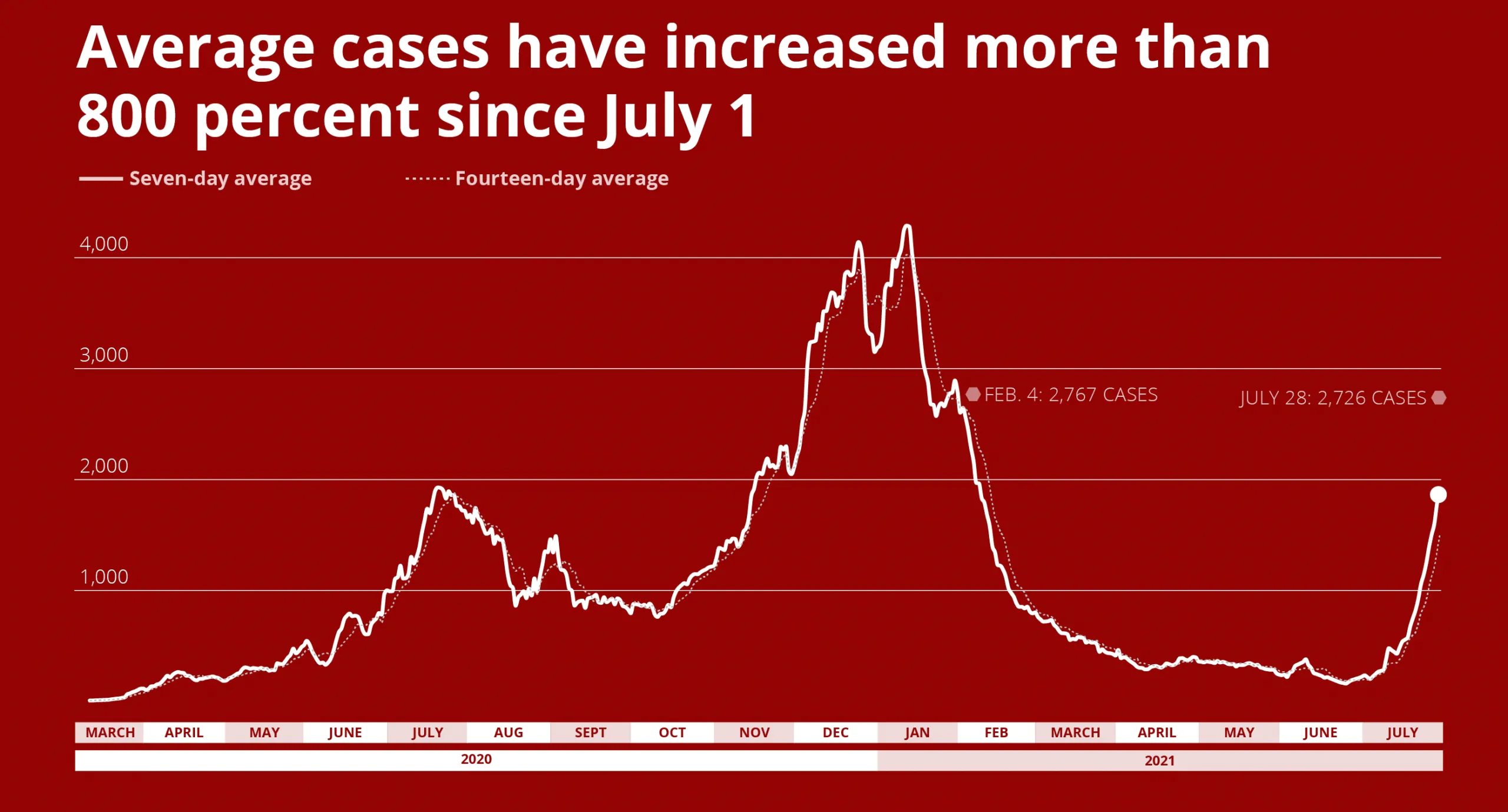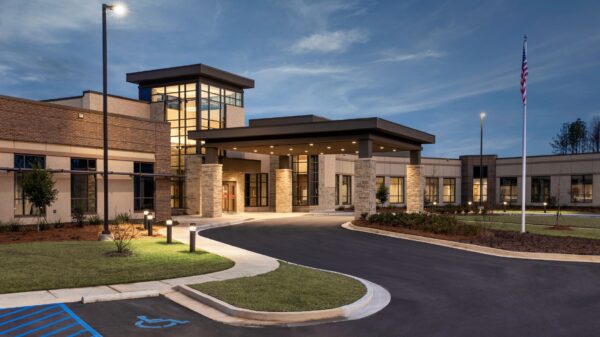Alabama’s surging new COVID-19 cases and hospitalizations are alarming the state’s medical experts, who worry that with such a low vaccination rate statewide, things will only get worse.
Alabama reported an increase of 2,726 new confirmed COVID-19 cases Wednesday, the largest daily increase since Feb. 4. The state’s seven-day average of new cases of 1,931 is an 815 percent increase from the average on July 1.
{{CODE1}}
Cases are skyrocketing in Mobile County, which added 560 cases Wednesday, more than on any single day since the start of the pandemic, excluding some days when backlogs were reported. The county’s seven-day average of new daily cases, at 353, is nearly 25 percent higher than the previous high of 284, recorded on Jan. 13.
{{CODE3}}
Hospitals statewide continue to see more COVID-19 patients, and on Wednesday, there were 1,181 hospitalized with coronavirus, up 361 percent from July 1.
“The slope of this increase, the rate at which the hospitalization numbers are going up, is unprecedented in Alabama,” State Health Officer Dr. Scott Harris told reporters on Tuesday, calling the rapid rise in hospitalizations “very concerning to us.”
{{CODE2}}
Alabama’s vaccinations in recent weeks have been increasing slightly. The state’s seven-day average of daily vaccinations on Monday was 9,047. The state reached a post-peak vaccination low average of 4,442 vaccinations on July 8.
Vaccinations in Alabama remain very low, however. The state has the lowest percentage of fully vaccinated residents in the country, at 34.2 percent, according to the Centers for Disease Control and Prevention.
No Alabama county has more than 43 percent of its population fully vaccinated, and only 28 of the state’s 67 counties have more than 29.9 percent fully vaccinated, according to the CDC.
Harris and other health experts continue to urge Alabamians to get vaccinated, both to protect themselves and others. Harris said Tuesday that close to 99 percent of those in the hospital and dying of COVID-19 are unvaccinated.
“If you get most of your news from social media, there’s a high likelihood that you might not be getting the story correctly,” Harris said of the public’s understanding of COVID-19 vaccines.
Harris encouraged people to speak to their own health care providers if they have questions. “If you’re not sure, please talk to your doctor,” Harris said. “If you don’t have a doctor, please talk to us in public health. We’ll give you the best advice we have.”















































